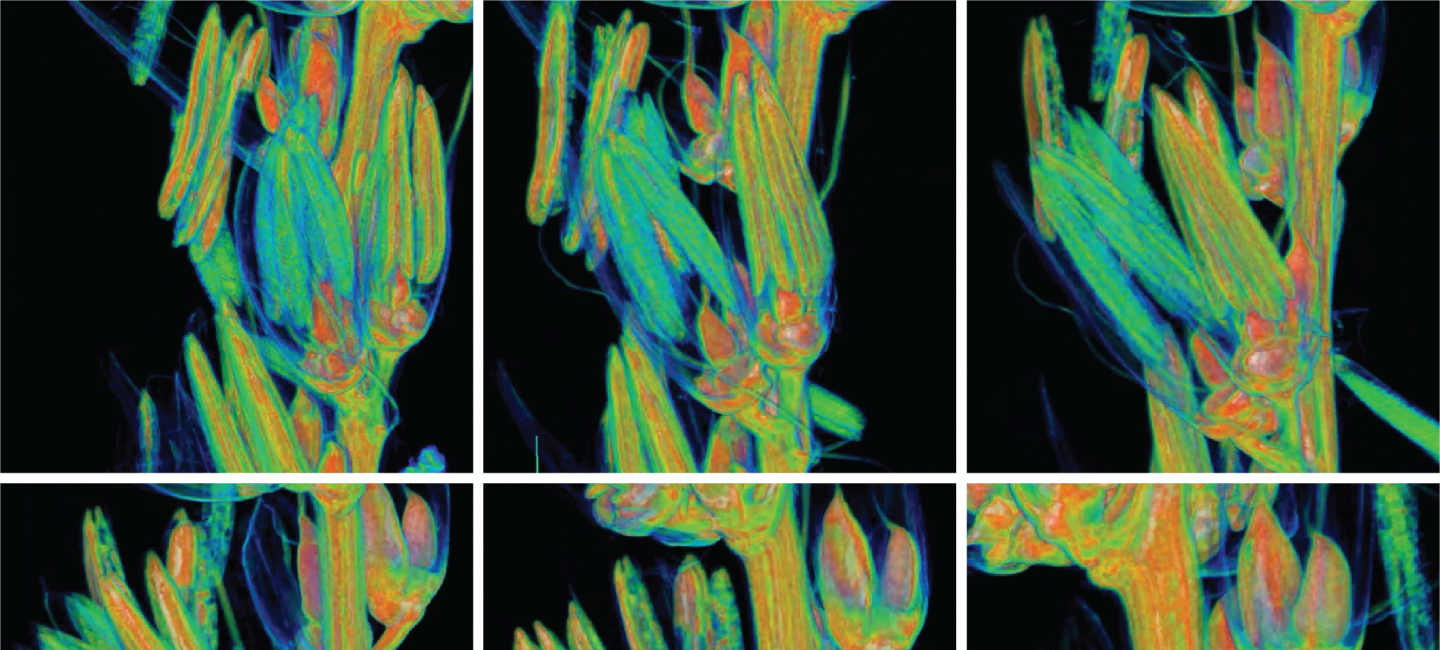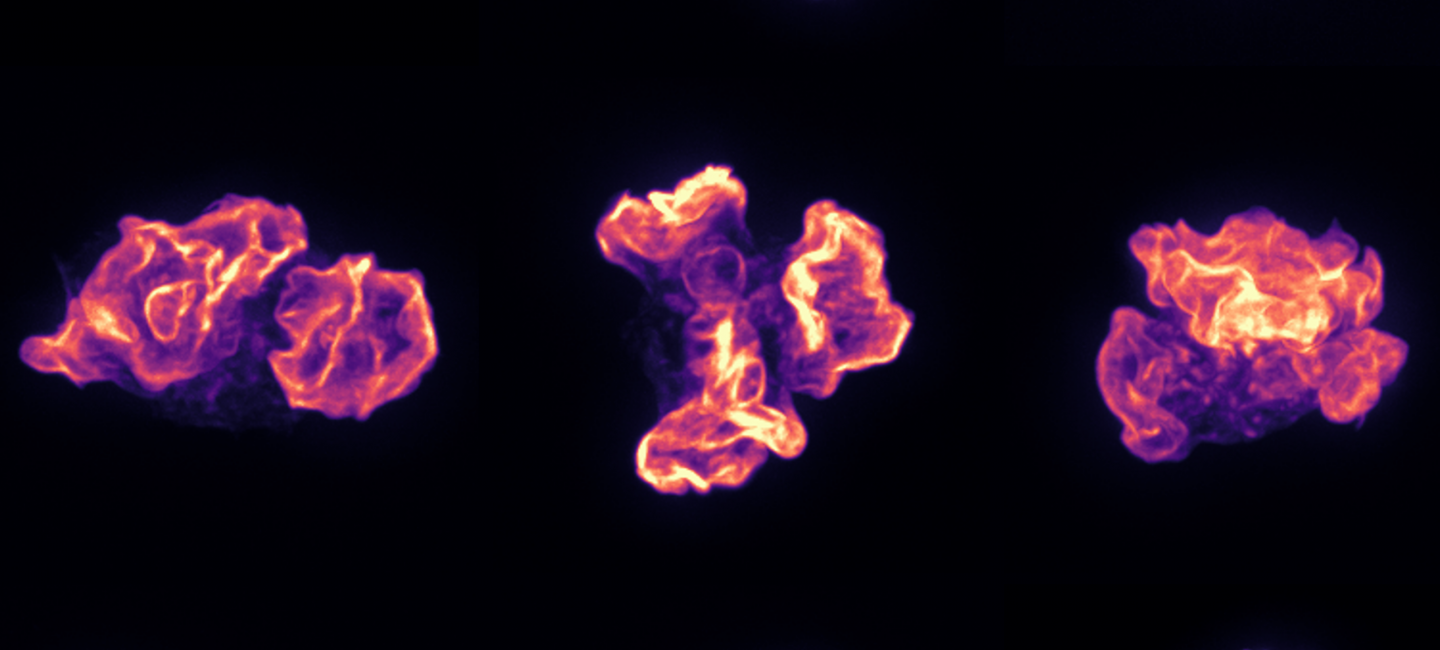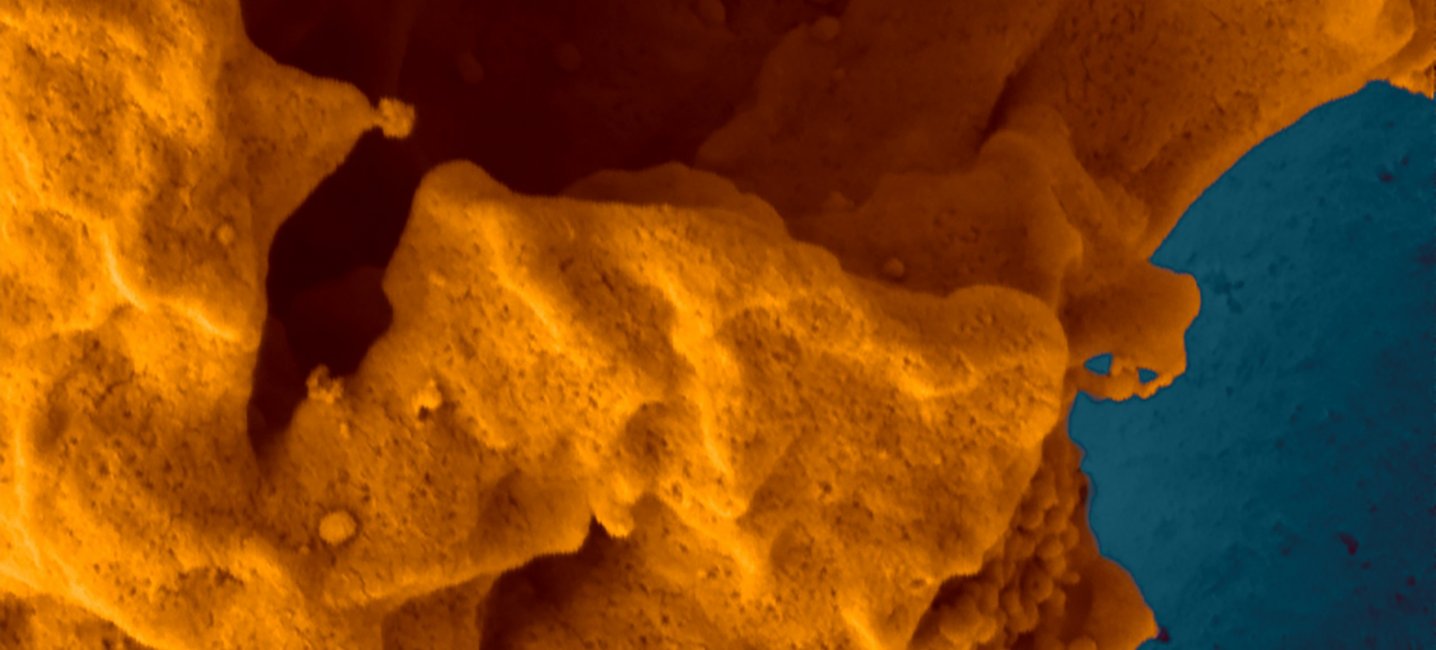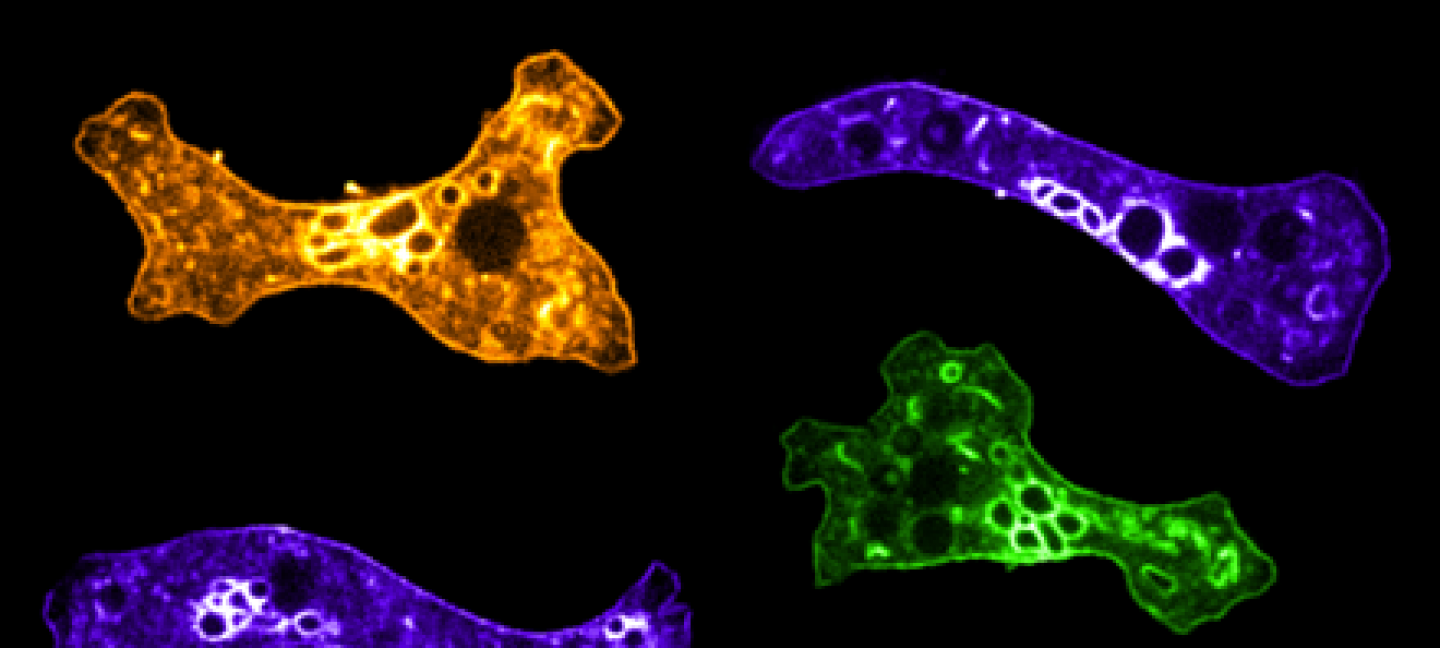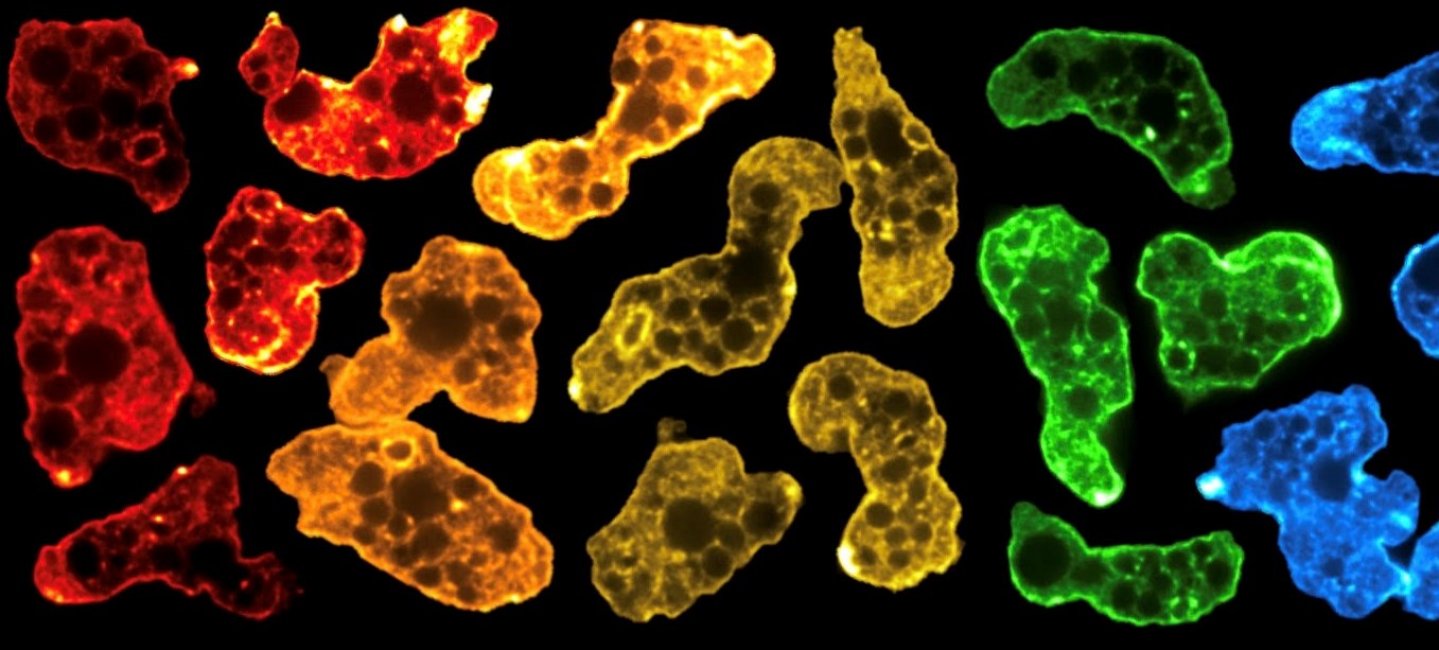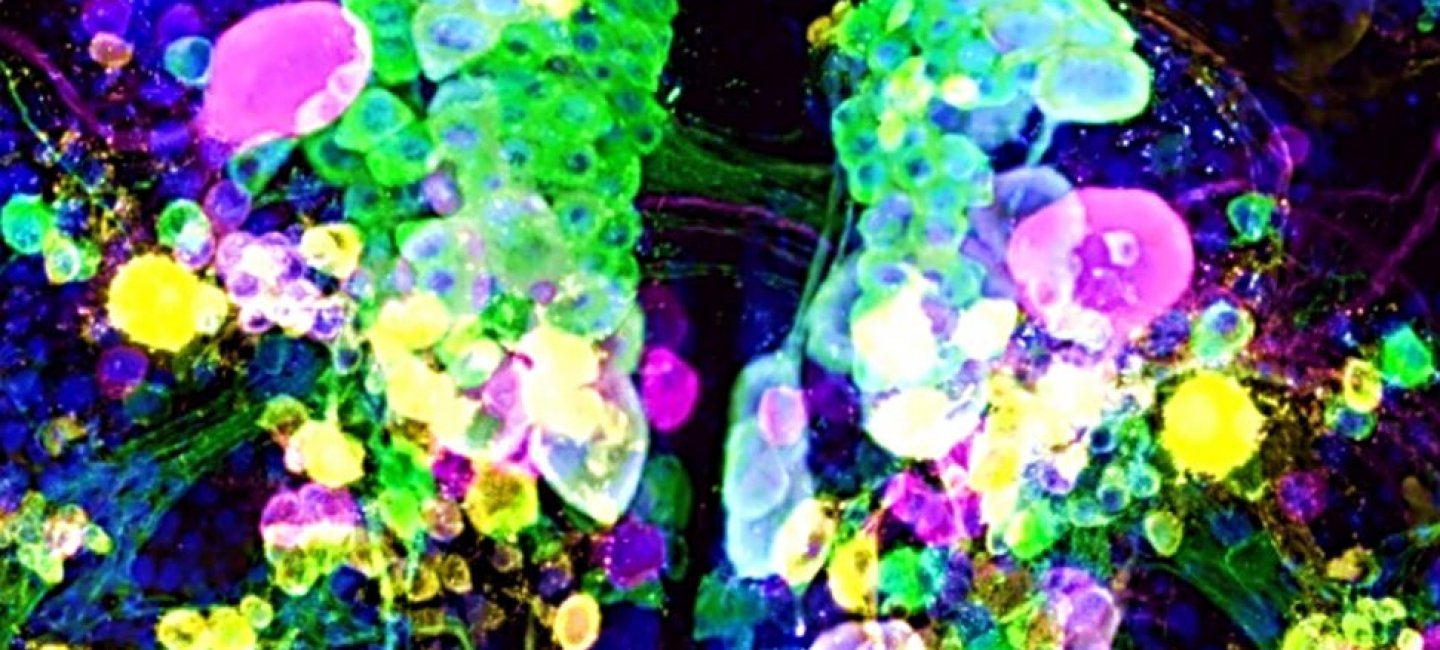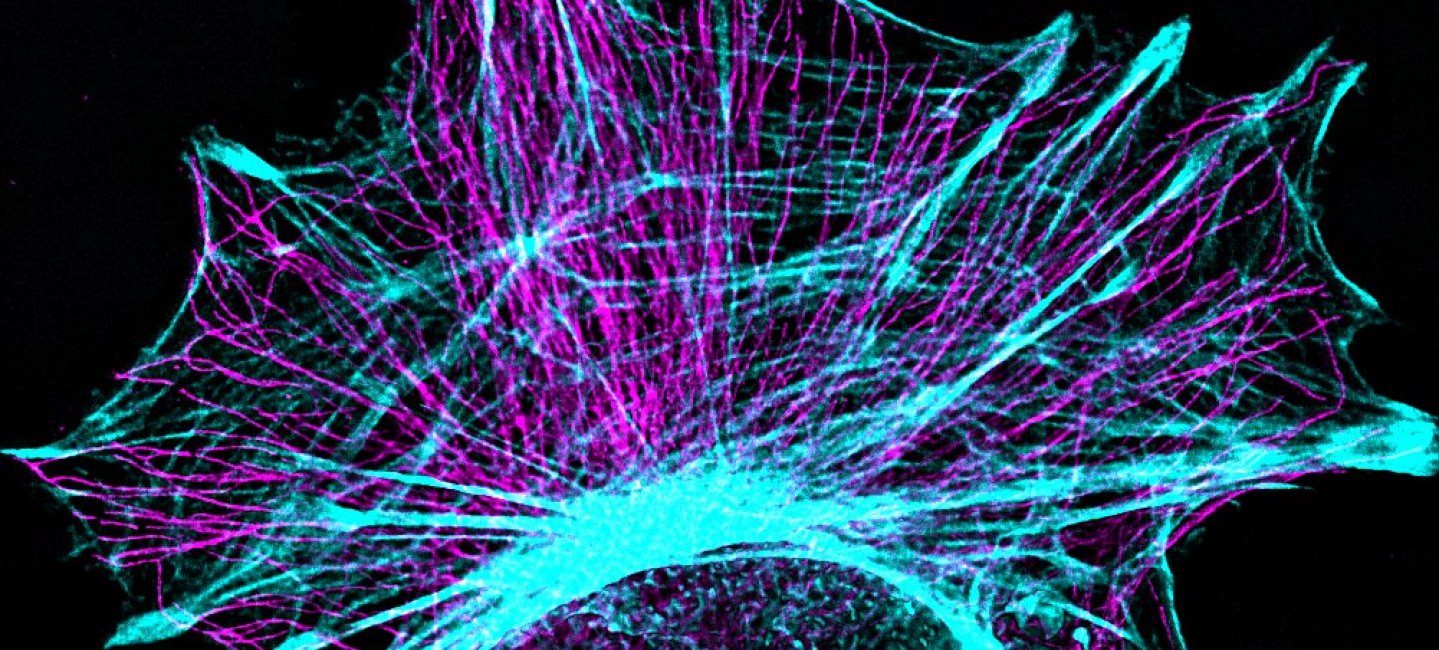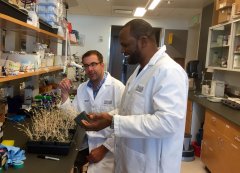News & Announcements
Three MCB students awarded Graduate School Dissertation Research Grants
Three MCB students awarded Graduate School Dissertation Research Grants
Three MCB students, Kamal Joshi (Chien group), Alexandria Wells (Pobezinsky group) and Trisha Zintel (Babbitt group), received Dissertation Research Grants from the Graduate School. This program recognizes the research and accomplishments of the outstanding graduate students at UMass, and provides funds to assist recipients in completion of their dissertation.
Between the folds with the small and mighty: Ligands guiding the folding of proteins in surprising ways
Between the folds with the small and mighty: Ligands guiding the folding of proteins in surprising ways
MCB students in the Gierasch and Garman labs at UMass, Amherst, have advanced the understanding of the relationship between protein folding and ligands, very small (~100 daltons in size) molecules which reside in the cell. Ligands were found to guide much larger molecules in the folding process, by recent MCB Alumnus, Karan Hingorani. Misfolded proteins are often the cause of disease, and the findings, by Hingorani, and confirmed by current MCB Program students, Mathew Metcalf and Derrick Deming have important implications in new therapies and pharmacological treatments of disease. Read more
Karthik Chandiran PhD Dissertation Defense
Karthik Chandiran PhD Dissertation Defense
Wednesday, March 29, 2017
2:30 PM
Integrated Sciences Building, Room 221
Dissertation Title: Notch1 modification and signaling in T helper cell differentiation
Advisor: Lisa Minter
Pilotte receives Bill and Melinda Gates Foundation Grand Challenges Explorations Phase II Award
Pilotte receives Bill and Melinda Gates Foundation Grand Challenges Explorations Phase II Award
Nils Pilotte, a 4th year student in the University of Massachusetts Amherst Molecular and Cellular Biology Ph.D. Program, recently received a Bill and Melinda Gates Foundation Grand Challenges Explorations Phase II Award in the amount of $424,874. This award, which was received as a follow-up to a 2013 Phase I award in the amount of $100,000, will expand upon his preliminary proof-of-concept research, and aims to enable low-cost, high-throughput, sustainable surveillance for the presence of tropical parasites through the molecular monitoring of hematophagic insect excreta/feces (E/F). Through the sampling and analysis of E/F rather than whole insects, the biological mass of samples can be greatly reduced, minimizing the limitations imposed by the presence of large concentrations of “polluting” DNA, and allowing for the improved throughput of testing. Furthermore, as non-vector insects which have taken a parasite-containing blood meal rid themselves of parasite material through deposition in the E/F, such testing expands the pool of material suitable for analysis. Preliminary work has demonstrated the adaptability of this methodology to the detection of both filarial and malarial parasites, and Nils will work to fine tune these testing platforms with the goal of developing recommendations for the programmatic implementation of this alternative approach to infection monitoring and surveillance.
Kamal Kishore Joshi PhD Dissertation Defense
Kamal Kishore Joshi PhD Dissertation Defense
2:00 PM
Monday, January 30, 2017
Life Sciences Laboratories Building, Room S330
Dissertation Title: ADAPTORS AT WORK: REGULATION OF BACTERIAL PROTEOLYSIS BY ADAPTOR HIERARCHIES
PI: Peter Chien
Evolutionary approach to investigating stem cells’ role in fruit yields using a CRISPR/Cas9 multiplex knockout strategy
Evolutionary approach to investigating stem cells’ role in fruit yields using a CRISPR/Cas9 multiplex knockout strategy
Plant genome scientist and evolutionary biologist, Madelaine Bartlett, in collaboration with researchers at Cold Spring Harbor Laboratory, N.Y. and the University of North Carolina, is looking at ways to better understand evolutionary genetics of plants. The National Science Foundation has awarded a four-year $4 million grant ($812,000 to Bartlett) for the team to study genetic regulation of plant stem cells and their role in higher fruit yields. Read more
Onur Oztas PhD Dissertation Defense
Onur Oztas PhD Dissertation Defense
11:00 AM
Friday, January 6, 2017
Life Science Laboratories Building, Room N410
Dissertation Title: HOST MECHANISMS THAT MAINTAIN BACTERIAL PARTNER DURING SYMBIOTIC NITROGEN FIXATION
PI: Dong Wang
Sam Hazen awarded NSF grant to study gene regulation of cell wall growth in Brachypodium in collaboration with local biotechnology group
Sam Hazen awarded NSF grant to study gene regulation of cell wall growth in Brachypodium in collaboration with local biotechnology group
The grass species Brachypodium is a model for the Hazen lab to better understand the transcription networks regulating secondary cell wall biosynthesis. The research grant from the National Science Foundation (NSF) is part of a Small Business Innovation Research program, and the three-year $713,000 award will fund research aimed at demonstrating how higher yields of renewable biomass can be provided by adapting the processes of secondary cell wall gene regulation that take place in grasses. Read More
Life Sciences Graduate Research Symposium
Life Sciences Graduate Research Symposium
The 6th annual UMass Life Sciences Graduate Research Symposium will be held on Friday, December 2. The event brings together graduate students from all areas of life sciences research at UMass to present their work in both talks (9:00 am-5:00 pm, Life Sciences Laboratories Building, Room S340) and a poster session/reception (5:00-6:00 pm). This event is open to everyone who wants to learn about the fantastic life sciences work going on at UMass! The schedule for presentations is available on the LSGRC website.
MCB students awarded NIH funded two-year traineeships through the UMass Biotech Training Program
MCB students awarded NIH funded two-year traineeships through the UMass Biotech Training Program
Graduate students in the MCB Program, Margaux Audett (Maresca Lab) and Heather Sherman (Osborne and Minter Labs), have been awarded 2016 traineeships through the BTP Program. The 2-year NIH funded Traineeships allow the students to continue current research in their home labs, and also offer opportunities to make connections and network with others in the biotech industry through career events, seminars and an annual symposium. Laboratory modules, originally established through the Institute for Cellular Engineering, have been continued through the Biotech Training Program, giving students hands-on experience with cutting edge techniques, and industrial internships for students in BTP are available. Current internships are through Vertex Pharmaceuticals, Sanofi (Genzyme) and the Material and Analytical Sciences team at Boehringer Ingelheim. Read More
